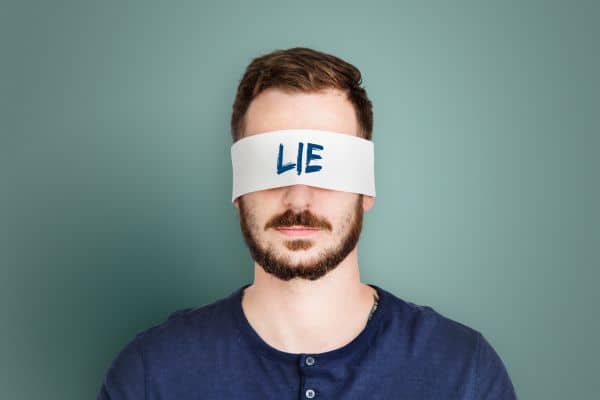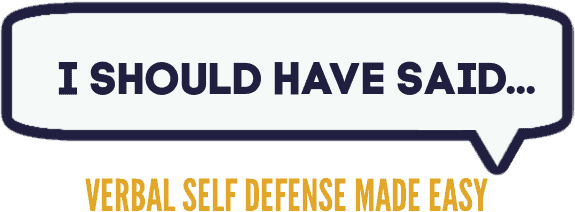
Fake friends can leave us questioning our friendships, usually something just doesn’t sit right. Ever felt an unsettling void after a chat with someone you considered a friend? Or sensed that their smile didn’t quite reach their eyes? In our adventure through life, we all encounter friends who may not always be genuine.
Spotting these insincere interactions can be challenging, but it’s crucial to protect our well-being.
Dive in to discover the signs of a fake friend and learn how to shield yourself from hollow connections.
Recognizing superficial interactions WITH FRIENDS
You meet someone, and everything seems fine on the surface, but something’s just not right.
Have you ever been with someone who makes you feel empty? That’s what it’s like when you’re dealing with a fake friend. It’s like they’re there, but not really there. You deserve more than empty words and half-hearted smiles.
You might be wondering, “How do I spot these shallow connections or superficial interactions?” I’ve got your back. Here’s how you can tell when someone’s not being genuine with you.

FAKE FRIENDS HAVE A Lack of genuine interest
Opening up, only to feel that the other person wasn’t really listening? Like you’re just a passing thought in their busy day? That’s one of the signs of superficial interactions.
It’s a deep kind of hurt. Imagine sharing about an important moment, hoping for a comforting word or a shared excitement, but getting nothing in return.
It’s simple. When someone truly cares about you, they show it. They’ll ask about that big day you were nervous about.
They’ll remember your dog’s name or that your little sister had a school play. But a fake friend? They might just nod, change the topic, or even worse, make everything about them.
One-sided conversations
When you’re trying to share, to connect, but the conversation seems to be all about them. It’s as if you’re just an audience to their endless monologue. This is another sign of superficial interactions.
When every talk feels like it’s only their world, their problems, their joys, and there’s little room for you, it’s heart-wrenching.
Maybe you found yourself patiently waiting for your turn to speak, only to be interrupted or brushed off.
That’s not how true friendship feels. Real friends genuinely want to hear your stories, your worries, and your dreams. They value your voice and your feelings, even if they don’t always agree.
It’s hard to admit, but sometimes the people we think are our friends aren’t truly there for us. Recognizing those moments when you’re left feeling small or unheard can be the first step in understanding who truly has your back.
If you often feel overshadowed, it might be a sign to step back and think about the place this person holds in your life.
Spotting inconsistencies WITH A FAKE FRIEND
Ever noticed that friend whose stories don’t quite add up? One day, it’s one thing, and the next, it’s something completely different. It’s these little shifts, these changes in their tales or behavior, that can hint at something deeper.
It’s not always easy to spot, but when you see these inconsistencies popping up, it’s a sign to be cautious. Trust your gut.
Here are some common signs of inconsistencies to watch out for.
Frequent lies
I know it’s tough to hear, but one clear sign of a fake friend is when they lie to you often. Imagine trusting someone, only to find out they’ve been hiding the truth. It hurts, doesn’t it?
If you ever catch your friend lying, please talk to them. Your feelings matter. If they keep lying, you might have to think about whether this friendship is good for you. Always put yourself and your feelings first.

Some common lies that fake friends tell include:
1. Making excuses for not showing up to important events: It’s heartbreaking when someone you count on keeps making excuses and missing out on moments that mean a lot to you.
2. Saying they’ll do something and then not following through: It’s truly disheartening when someone tells you they’ll do something, but then they just don’t follow through. You expect and hope for their commitment, especially when you’re counting on them. It’s not just about a promise, it’s about trust.
3. Pretending to be interested in your life when they’re really not: It’s such a heavy weight on the heart when you find out someone’s interest in your life was just a pretend game. Each time they asked about your day or your dreams, you thought you were sharing with someone who cared. However, their concern was merely an act.
Broken promises OF A FAKE FRIEND
Every broken promise is like a little piece of your trust being chipped away. When a friend constantly breaks their word, it’s more than just a momentary letdown; it’s a pattern.
You deserve friends who stand by their word and show you they value and respect your feelings.
If broken promises are becoming a regular thing, it might be time to think about the kind of friends you want in your life.
Some common broken promises include:
- Promising to help you with something and then not showing up: When you’re relying on someone and they promise to help, only to leave you waiting – it’s like a punch in the gut. Every time they don’t show up, it’s not just the help you miss out on; it’s the trust that gets shaken.
- Saying they’ll call or text you back and then not doing so: When someone says they’ll reach out, and then silence follows, it’s like an echo of loneliness and uncertainty. It’s not just a missed call or text; it’s the lingering thought – “Did I matter enough?”
- Making plans with you and then canceling at the last minute: When you clear your schedule, get excited, and then get that last-minute cancellation, it feels like a rug being pulled out from under you. It’s not just about the plan; it’s the sinking feeling of being a second place or an afterthought.
It’s never easy when someone close lets you down. We’re all human, right? Even the best friend can slip up once in a while. But when those little letdowns start piling up, forming a pattern of broken promises and untruths, it’s more than just a simple mistake.
If lies seem to be a regular thing, it’s a cue for a heart-to-heart talk with your friend. Trust is the bedrock of any relationship, and you have every right to know where you stand.
Understanding emotional manipulation with fake friends
You might not see it right away, but emotional manipulation is sneaky, often hidden behind sweet words or small actions. But deep down, you feel it: the control, the push and pull, the way your feelings get twisted.

You’re not alone in this. Many struggle to put a finger on it because these actions are draped in subtlety. It’s those moments when a friend makes you doubt your feelings or when they play on your emotions to get what they want. It’s not okay, and it’s not your fault.
Let’s shed light on this together. By understanding the signs of emotional manipulation, you can stand strong and protect your heart. Remember, true friends lift you up; they don’t drag you down with hidden strings.
Here are some sub-sections that will help you understand emotional manipulation:
Usage of guilt
Fake friends may use guilt to manipulate you into doing something you don’t want to do. Ever heard them say, “If you really cared, you’d do this for me?” or “After all I’ve done for you, is this how you repay me?”
It’s unfair, a way to trap you, to mold you into something they want, not the friend they deserve. And suddenly, you’re left carrying the weight of their problems, their emotions, all because they made you feel like it was your duty.
But let me tell you something important, something worth holding close to: you are not an emotional dumping ground.
You have the right to say no, to stand firm, and to protect your own peace. True friendship doesn’t know the language of guilt or manipulation. It’s about respect, understanding, and acceptance.
Inconsiderate behavior FROM SUPERFICIAL FRIEND
That heavy feeling in your chest when you realize that you’re not a priority to someone you thought was a friend. You put in effort, make time, and even compromise, only to be met with dismissive acts and thoughtless choices.
Ever felt the pain of being left behind as they make plans without you? Or the frustration when they always seem to show up late, brushing it off like it’s no big deal? It’s a lonely feeling when it seems they only remember you when it’s convenient for them.
True friendship is built on mutual respect and understanding. It’s about both sides caring, showing up, and valuing each other. If someone constantly overlooks your feelings or makes you feel like an afterthought, it’s a sign.
You have every right to set boundaries, to speak up, and to be treated with kindness and respect.
More posts lists you might like
- Top ten comebacks for fake friends
- How to cut off toxic friends: a clear guide
- Check out our top ten comeback lists
Observing a lack of support from fake friends
Support, that simple act of being there, can mean the world, especially in tough times. A real friend stands by your side, catching your tears, hearing your fears, and offering warmth.
But what if that support isn’t there? It’s like walking on a wobbly bridge, feeling unsteady and alone. If you’re always there for them, but they seem to vanish when you need a friend, it’s a sign, a signal that maybe this friendship isn’t as genuine as you believed.

A friend’s absence in your challenging moments, their silence when you yearn for words of comfort, or their distraction when you just need someone to be present – these are more than simple oversights. They’re signs of a lack of true support.
Here are a few signs to watch out for:
Absence in times of need
The dark times, when the world feels cold and you’re yearning for a familiar, comforting voice, a hand to hold, someone to simply say, “I’m here for you.”
That’s when friendships are truly tested. When you face heartbreak, when the world seems to turn upside down, you just wish for your friends to stand beside you.
But when that space beside you remains empty, the silence speaks volumes. Each time you reach out, hoping, praying for a response, and there’s nothing, it feels like an arrow straight to your heart. It makes you question, “Do they really care?”
True friends are like stars in the night sky, shining brightest during your darkest nights. If someone chooses to stay away precisely when you’re experiencing rough waters, it speaks a lot about their place in your life.
Unsupportive of YOUR success
The euphoria when things fall into place, dreams come true, and your hard work pays off. In those golden moments, you naturally turn to share that joy with those closest to you, expecting their eyes to sparkle just as yours do.
But when instead of cheers, there’s silence, or even worse, a hint of envy. Your achievements, big or small, are pieces of your heart, and when a friend can’t stand by you, applauding, it feels as if they’re turning away from a part of you.
Jealousy, insecurity, or even indifference can rear their heads, painting true colors. If someone can’t join in your happiness, or dance in your moments of joy, it raises questions. Aren’t friends supposed to be your biggest cheerleaders, the ones clapping the loudest?
You deserve to be surrounded by those who amplify your happiness, not diminish it. Your triumphs should be a cause for collective celebration, not an excuse for someone to pull away. If the music of your success falls on deaf ears, it might be time to find a new friend.
Identifying disrespectful behavior in fake friends
When it comes to identifying fake friends, disrespectful behavior is a major red flag. Those times when you share something close to your heart, and instead of a caring ear, you’re met with disdain or mockery. Perhaps when someone you consider a friend dismisses or belittles you.

Friendships should uplift, but when there’s a consistent pattern of disrespect, it might be a sign of fake friends.
Moreover, everyone deserves respect. It’s the foundation of any true relationship. So, if you’re constantly feeling undervalued or brushed aside, it’s not just a sign, it’s a blaring alarm.
Here are a few sub-sections to help you identify disrespectful behavior:
Disregard for boundaries
The gut-twist you feel when someone oversteps, the unease when they push too far – it’s real, isn’t it? Personal boundaries, those lines we draw for our emotional well-being, they’re sacred.
Yet, when a “friend” continuously steps over them, it’s like a little slap to the heart every single time.
You’ve probably voiced it out, maybe subtly hinted, or even outright told them where your limits lie. But if they still bulldoze through your feelings, your preferences, your clearly marked lines, it’s more than just in consideration – it’s disrespect.
You deserve to be heard. Your boundaries aren’t mere suggestions. They’re reflections of who you are and what you need for your peace of mind.
If someone can’t honor that if they belittle or outright ignore what’s important to you, then you have to ask: is this relationship nourishing or draining?
Pay attention. Do they listen when you say ‘no’? Or do they push until you’re cornered? Are they understanding when you open up about your limits? Or do they belittle them? If your boundaries are a mere suggestion to them, maybe it’s time to ask if they truly value you.
Constant criticism FROM A FAKE FRIEND
That sinking feeling when you’re met with unending criticism, do you recognize it? When it feels like nothing you do is ever right when every choice you make seems to be under a microscope. It’s like wearing shoes a size too small, always pinching, never comfortable.
Imagine having someone constantly throw shade on the sunshine of your achievements or finding flaws in the joys you cherish. When a “friend” does this relentlessly, it’s not just about having an opinion. It’s a cloud they cast over your self-worth, trying to dim your light.
Real friends lift you up; they don’t wear you down. It’s okay to have differences and to disagree at times. But there’s a world of difference between constructive feedback and perpetual fault-finding.
If someone in your life keeps dragging your spirit down, you have to ask yourself, “Is this the kind of energy I want around?”
Differences between fake friends and real friends
Understanding the difference between those who genuinely care for you and those who are just passing by can make all the difference to your well-being.
Real friendships are like home – warm, welcoming, and comforting. But when the walls of this ‘home’ start to close in, it’s a hint that something’s not right.
It’s important to remember that recognizing a fake friend isn’t about assigning blame or harboring resentment. It’s about self-awareness and taking steps toward self-preservation. Everyone deserves friendships that are nurturing, uplifting, and authentic.
If you recognize any of the signs discussed in this article, take a moment to reflect on the relationship’s impact on your well-being. It’s okay to distance yourself from people who don’t align with your energy or values.
Trust your intuition, prioritize your mental and emotional health, and surround yourself with individuals who genuinely care for and support you.
The journey of life is filled with ups and downs, but with true friends by your side, every challenge becomes more bearable, and every joy is amplified. Cherish those genuine connections, for they are the anchors that keep you grounded and the wings that let you soar.
The Role of counselling and self care
I Should Have Said Media will earn a commission after clicking links on this page at no additional cost to you. Learn more.
When you are dealing with a fake friend can be stressful, consider getting support from a professional. Talking to a counsellor is a great way to work through a challenging situation, and help you find some strategies to work through the person’s behaviour.
Better Help is a great resource where you can talk to a counselor from the comfort of your own home.
Taking care of your own needs isn’t selfish, and you will feel better in the long run.







